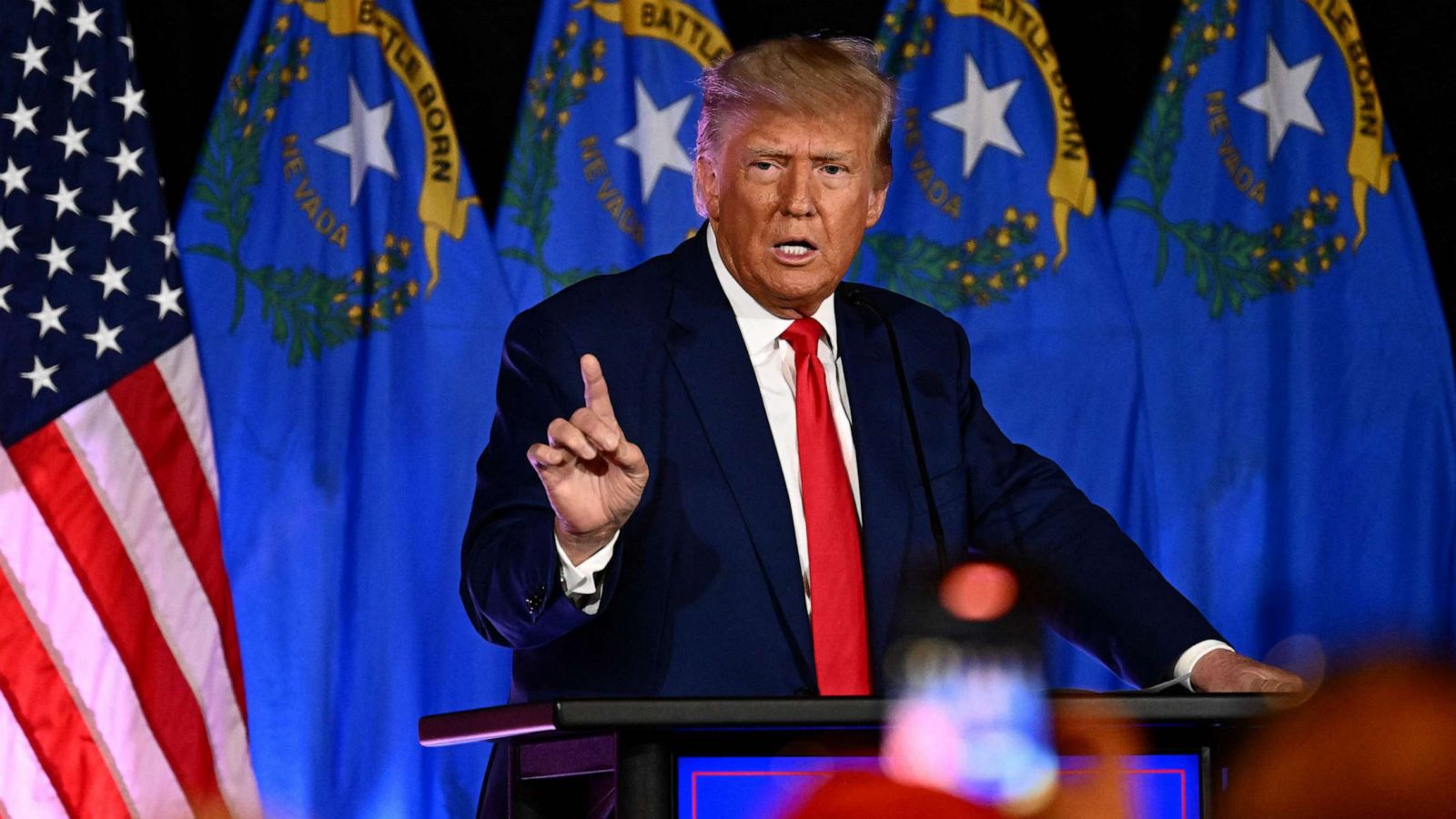Former President Donald Trump’s decisive victory in the Nevada GOP caucuses has drawn significant attention, particularly regarding the Associated Press’ (AP) early call of the race. The caucuses, the second Republican presidential contest held in the state, saw Trump secure an overwhelming majority of the votes, with nearly 98% in his favor.
This victory, following his previous wins in other states, has further solidified his position as a frontrunner for the Republican nomination in the 2024 presidential election. The AP’s decision to call the race for Trump was based on a thorough analysis of the initial vote results, which showed him with a commanding lead in the caucuses. Unlike other states, Nevada held two Republican presidential contests in the same week, leading to a dispute between state officials and the state GOP over the process of presidential nominating.
In 2021, Nevada enacted a new law that transitioned from the traditional Iowa-style presidential caucuses to a state-run primary. However, the Nevada Republican Party opposed this plan and chose to conduct its caucuses, essentially disregarding the primary and rendering it inconsequential.
The significance of the AP’s race call lies in the unique circumstances surrounding the Nevada GOP caucuses and the implications of Trump’s resounding victory. The decision to call the race early was informed by the unprecedented nature of the dual contests in Nevada, the overwhelming support for Trump, and the absence of significant challengers in the caucuses.
Former U.N. Ambassador Nikki Haley, Trump’s primary rival, opted to participate in the non-binding primary, where she finished behind the “none of these candidates” option, further consolidating Trump’s position as the dominant figure in the Republican race. The absence of a “None of these candidates” option in the caucus ballot and the Republican Party’s prohibition on candidates running in both the primary and the caucuses contributed to the clear path to victory for Trump.
The decision to call the race for Trump in the Nevada GOP caucuses reflects the AP’s commitment to providing accurate and timely election reporting. The thorough analysis of the initial vote results and the overwhelming lead secured by Trump left little doubt about the outcome of the caucuses. The AP’s race call serves to inform the public and the broader political landscape about the developments in the Republican presidential race, particularly the growing momentum behind Trump’s candidacy.
The Nevada GOP caucuses and the AP’s race call have broader implications for the 2024 presidential election. Trump’s successive victories in key states and the early race call in the Nevada caucuses have further solidified his position as the frontrunner for the Republican nomination. The overwhelming support for Trump in the caucuses, coupled with the absence of significant challengers, underscores the formidable strength of his candidacy within the Republican Party.
The AP’s race call has provided clarity and insight into the evolving dynamics of the Republican presidential race, offering a comprehensive understanding of the current state of the competition.
The AP’s decision to call the Nevada GOP caucuses for Trump was based on a meticulous analysis of the initial vote results, which unequivocally demonstrated his overwhelming lead. The unique circumstances surrounding the dual contests in Nevada, the absence of significant challengers, and the Republican Party’s internal dynamics all contributed to the early race call. The implications of Trump’s resounding victory in the caucuses and the AP’s race call extend beyond the state of Nevada, offering valuable insights into the evolving landscape of the 2024 Republican presidential race.

